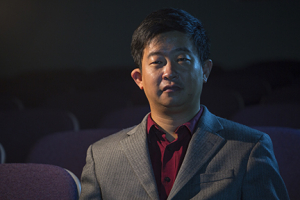Zhu Han, professor of electrical and computer engineering at the UH Cullen College of Engineering, earned the 2015 EURASIP Best Paper Award for a paper he co-authored in the EURASIP Journal on Advances in Signal Processing.
The European Association for Signal Processing (EURASIP) was established in 1978 to provide a platform for the dissemination of signal processing information and for the facilitation of discussion about all aspects of the technology, according to the association’s website.
Han and three other authors received certificates and travel allowances to attend the 2015 European Signal Processing Conference in Nice, France this summer for their paper "Securing Collaborative Spectrum Sensing Against Untrustworthy Secondary Users in Cognitive Radio Networks." Hans’ collaborators include Winkai Wang and Yan Sun, professors of electrical, computer and biomedical engineering at the University of Rhode Island, and Husheng Li, professor of electrical engineering and computer science at the University of Tennessee.
Cognitive radio spectrum sensing is a revolutionary secondary user network that improves primary network performance by optimizing scarce spectrum resources. However, untrustworthy secondary users can significantly degrade the performance of collaborative spectrum sensing, according to the journal paper.
In this computational study, Han and his colleagues used an onion-peeling approach to analyze cases involving both individual and multiple attackers. They identified secondary users, calculated their trust values, defined damage metrics, investigated attacks that maximized damage and proposed defense schemes, according to the paper. Those with highly suspicious reports were excluded from decision-making.
“Compared with existing defense methods, the proposed scheme can effectively differentiate malicious nodes from honest nodes,” the authors wrote in their paper. “As a result, it can significantly improve the performance of collaborative sensing.”
